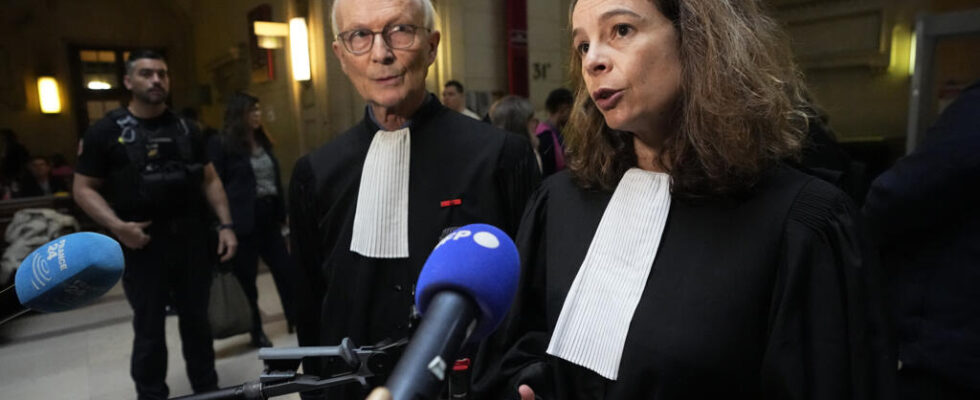The trial of three dignitaries of the Bashar al-Assad regime opened this Tuesday, May 21 before the Paris Assize Court. Three executives of the Syrian intelligence services are being tried in their absence for complicity in crimes against humanity, due to their alleged role in the arbitrary arrest, torture and death of a Franco-Syrian father and son, Mazzen and Patrick Dabbagh. A fate shared by thousands of people since the start of the civil war in 2011.
3 mins
Hearing report, Laura Martel
On the left, an empty box and no black dress: the accused have not appointed a lawyer to represent them. On the platform, the court seats are also sparse, because in the absence of the accused, the three magistrates sit without a popular jury. The room is full: public, researchers, journalists huddle behind the civil parties.
Obeida Dabbagh, brother and uncle of the victims, is there. “ Obviously, the accused were not going to throw themselves into the den of the wolf, but I would have liked us to at least be able to confront the defense of their lawyers » he laments, anxious but relieved that this trial, “ a ten year fight ”, stands still.
The regime does not want to appear so as not to lend credibility to this judicial process, but they necessarily have ears in the room.
“ I so wish this trial could have been held in Damascus », sighs for his part Mazen Darwish, himself abused in Syrian prisons. It is also the “ systematism of repression » led by the power of Bashar al-Assad that the researchers detail on this first day. “ The prison system, where torture is industrialized, is the backbone of a regime that wants to exercise absolute control over society to maintain itself. », Points out academic Ziad Majed.
Like Mazen and Patrick Dabbagh, “ hundreds of thousands of Syrians have experienced detention, undoubtedly 15,000 have died there » he recalls.
“The objective is to break up families”
One of the issues at stake in the trial is the question of proof of this mass repression in Syria, systematized, while it is impossible to investigate in the country. But if the material elements are rare, the César file gives a sordid overview of this repression “ quasi-industrialized “.
César is the pseudonym of a military photographer charged, in March 2011, with photographing the bodies of civilians. When he fled Syria two years later, he took 27,000 numbered photos of emaciated, mutilated corpses.
“ In Syria you can go to a protest or just buy bread and never come back, you disappear », testifies with emotion Garance le Caisne, author of a book on the subject. For her, these photos “ are the archives of absence, they show the erasure of these people, whose bodies are never returned “.
The families speak of a gaping hole: there is no arrest order, they do not know where their loved one is being held, they have nothing and must also turn to the regime to hope for a scrap of information. The objective is to break up families, to maintain control over populations, it is another form of torture.
The torture that the prisoners undergo also aims to “ destroy “, both mentally and physically, denounces the journalist, who concludes: ” In Syria, we do not torture to obtain information, to make people talk, but to silence, to annihilate. This system is the DNA of the Bashar al-Assad regime. »
Read alsoFrance: start of a highly anticipated trial concerning the alleged crimes of the Syrian regime
